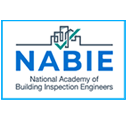Important Factors You Should Know Before Purchasing a Condo Unit
Buyers Should Perform Proper Due Diligence
Viewed by some as a stepping stone towards home ownership, condominiums are a less expensive, more viable option for many first-time home buyers than single-family properties for a variety of reasons. Benefits such as lower down payments, and shared maintenance fees add up to significant savings. Additionally, a lifestyle driven by convenient, enjoyable amenities offered by condominiums furthers their appeal. For example, on-site swimming pools, gyms and recreational offerings are covered by Condominium Association (COA) fees, whereas these perks rarely come with the purchase of a house.
Items to Investigate Before Closing on a Condominium
While it is easy to get caught up in the superficial frills of a building, we encourage buyers to do their due diligence prior to putting money down on a condominium. And we always suggest a home inspection is conducted before the purchase is complete.
- Check the Financials of the COA - Condominium Associations are an integral part of community properties - they function to ensure that the property is maintained. COA’s have the authority to collect dues as well as make assessments. COA finances are open to prospective buyers and the information accessible includes dues, yearly balance, annual revenue, reserve funds, and pending lawsuits. Protect yourself by thoroughly reviewing these documents.
- Make Sure the Building is NOT in Litigation - While lawsuits do not automatically mean you should look elsewhere, they are something to take very seriously. Litigation for builder defects and structural issues are very common. Litigation in the community can also equate to poor management and/or volatile neighbors. Discuss the situation with an attorney and remember a condo in litigation may scare away lenders, limiting financing or refinancing options.
- Check the Conditions, Covenants & Restrictions - The CCRs the rules and regulations created by the COA that govern residential life in the community. These rules outline the acceptable norms and standards for occupants in common areas, hallways, and exterior facilities. Read and understand the CCRs before making a purchase. It is important to know whether you can abide by the established community guidelines because non-compliance could mean you could be fined, forced to comply, or even sued.
- Make Sure the COA Dues Adequately Fund the Reserve Study - A reserve study is a statistical analysis that predicts and prepares for the costs associated with building expenses and common area replacement and repair, over a specific amount of time. This type of study looks at the physical state of the property and then conducts a financial analysis. Make sure that your COA dues are funding the reserve study at least 50% of the projected need or you may be in for a big increase of COA dues in the future. An underfunded reserve fund can also lead to large special assessments when capital components fail.
- Inspect the Grounds In-Person - Just because the common areas look nice does not mean everything else does. Inspect the community by walking around the property looking for signs of recent leakage, staining, clogs, pests, and other issues.
Thinking About Buying a Condo?
Purchasing a condominium is a great way to become a homeowner at a lower price point than a single-family house. Condos can provide a convenient, low maintenance lifestyle, while simultaneously allowing for long-term financial stability that is elusive to renters. The bottom line is that condominiums can be a good investment for the right buyer in the right location.
YOUR COMMUNITY IS OUR BUSINESS
For over 20 years, BUSTAMANTE ENGINEERS Designated Reserve Specialists have provided many kinds of services to condo communities. We specialize in working with existing buildings and owners on issues ranging from problem solving to maintenance planning. Our expertise in Community Associations meets the National Reserve Study Standards of the Community Association Institute (CAI) and the Common Interest Realty Guide of the American Institute of Certified Public Accountants.
SHARE CONTENT
Bustamante Blog

















